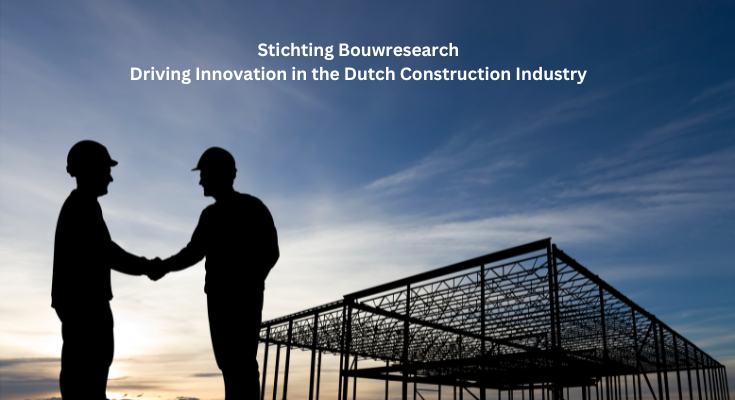Stichting Bouwresearch: Driving Innovation in the Dutch Construction Industry
Stichting Bouwresearch, synonymous with Dutch building expertise, blends innovation with traditional practices to establish quality. This blog article will take you on an interesting tour of the past, present, and future of Stichting Bouwresearch (SBR), also known as SBRCURnet, highlighting its monumental impact on the Dutch construction sector. From its modest beginnings in Rotterdam to its current status as a major force in advancing building practices and legislation, Stichting Bouwresearch has left an indelible mark on the industry.
Join us as we explore the significant influence this pioneering organization has had on a vital sector of society and its enduring legacy.

The History and Evolution of Stichting Bouwresearch
Stichting Bouwresearch, later rebranded as SBR and finally SBRCURnet, has played a pivotal role throughout the history of the Dutch construction industry. After World War II, there was an urgent need to coordinate new building methods and encourage research, leading to its founding in 1959.
Under the leadership of former minister Herman Witte, SBR rapidly gained prominence, becoming an invaluable resource for many small businesses in the industry. After merging with CUR Civil Engineering Center, it evolved into an even more formidable center for innovation and knowledge in the field.
From its humble beginnings in Rotterdam, Stichting Bouwresearch expanded into a dominant player in Delft. It continues to shape the future of Dutch construction expertise, thanks to the hardworking team led by engineer Jack de Leeuw.
Key Contributions to Dutch Construction Knowledge
Stichting Bouwresearch, now known as SBRCURnet, has significantly advanced Dutch building expertise. Their work has played a crucial role in improving building practices in the Netherlands through independent studies and collaborations with other industry experts.
Their efforts have led to the development of new approaches to construction safety regulations, energy efficiency benchmarks, and environmentally friendly building practices. By sharing their findings and best practices with industry stakeholders, they have raised the quality of building projects across the nation.
Staying ahead of the curve in construction technology and trends is possible due to Stichting Bouwresearch’s partnerships with universities, government organizations, and private firms. This continuous flow of information has benefited all projects and raised industry standards overall.
Stichting Bouwresearch has established itself as an authority on Dutch building techniques and a go-to resource for reliable information due to its commitment to construction-related research and education.
Collaborations and Partnerships with Industry Professionals
Stichting Bouwresearch has a long history of fostering collaborations among construction industry experts. The Dutch construction sector owes a great deal to these partnerships, which have encouraged innovation and the free exchange of information.
By collaborating closely with specialists from various industries, Stichting Bouwresearch has sustained its leadership in innovative building techniques and installations. These partnerships ensure that research efforts have practical, real-world applications.
Stichting Bouwresearch leverages the knowledge and experience of industry experts to guide its research and initiatives. These collaborations allow both parties to tackle challenges and discover new avenues for development and progress in the field.
As they seek new alliances to further increase their impact on the Dutch construction sector, Stichting Bouwresearch continues to demonstrate a strong commitment to collaboration. Together, they are creating a future where the industry’s success depends on the free flow of information.
Impact on the Dutch Construction Industry
Stichting Bouwresearch has profoundly impacted the Dutch construction industry. Through extensive research and development, SBR has significantly influenced the design, construction, and maintenance of buildings across the Netherlands.
SBR’s knowledge-sharing initiatives and collaborations with industry experts have propelled the construction business forward, fostering innovation and advancement. The insights gained from SBR have led to the development of safer, higher-quality buildings and have promoted more environmentally and socially responsible construction practices.
Maintaining a forward-thinking approach is essential for SBR as it continues to shape the future of Dutch construction. The industry’s evolution reflects SBR’s lasting influence and commitment to excellence.
Future Outlook and Opportunities for Stichting Bouwresearch
Exciting opportunities lie ahead for Stichting Bouwresearch. With a strong foundation in research and innovation, the potential for advancements in construction knowledge is limitless. In the future, SBR aims to further enhance its contributions to the Dutch construction sector by harnessing new technological advancements.
Collaborations with experts in the field will be crucial for advancing research endeavors and maintaining practices at the forefront of innovation. Expanding SBR’s reach and influence within the industry can be achieved by fostering partnerships with organizations and professionals who share similar goals.
Sustainability and green construction approaches must be prioritized moving forward. As environmental awareness grows, the demand for sustainable building solutions is increasing. By focusing on eco-friendly methods, SBR can position itself as a leader in promoting responsible construction practices.
Stichting Bouwresearch has a promising future as it evolves and adapts to meet the changing demands of the Dutch construction sector.
Also Read: Misty Severi: How She Became a Leading Voice in Journalism
Conclusion
As we conclude our exploration of Stichting Bouwresearch, it is clear that this organization has been instrumental in transforming Dutch construction expertise. Since its inception as the Bouwresearch Foundation, this institute has been a trailblazer in research and innovation, evolving into SBR and eventually SBRCURnet.
Stichting Bouwresearch’s impact on the Dutch construction sector is long-lasting, thanks to its collaborations with industry experts and relationships with institutions like CUR Civil Engineering Center. Their invaluable knowledge has helped raise standards and procedures during a time when such information was scarce.
Stichting Bouwresearch has limitless potential in the future to further advance building research and practice. With a history rooted in innovation and collaboration, this pioneering institute has a bright future ahead.
FAQs
What Was the Main Goal of Stichting Bouwresearch? The primary goal of Stichting Bouwresearch (SBR and later SBRCURnet) was to encourage and support research on innovative building methods within the construction and building installation industries.
Who Was the First Chairman of Stichting Bouwresearch? Stichting Bouwresearch was founded with the guidance of former minister Herman Witte, who played a pivotal role in its contributions to Dutch building expertise.
What Led to the Formation of CUR Civil Engineering Center? Implementation, Research, and Regulation (CUR) Civil Engineering Center arose seven years before SBR in 1959 with a comparable purpose: to supply construction enterprises with the expertise they needed for post-war rebuilding.
Where Was Stichting Bouwresearch Initially Located? Originally established in Rotterdam, Stichting Bouwresearch has now relocated to Delft. It was essential in connecting smaller construction firms with vital industry data.
How Did SBR Impact the Dutch Construction Industry? The Dutch Construction Industry was greatly impacted by SBR’s connections with industry professionals and collaborations with institutions such as CUR Civil Engineering Center. SBR provided much-needed knowledge after WWII, and its benefits are still felt today.



















